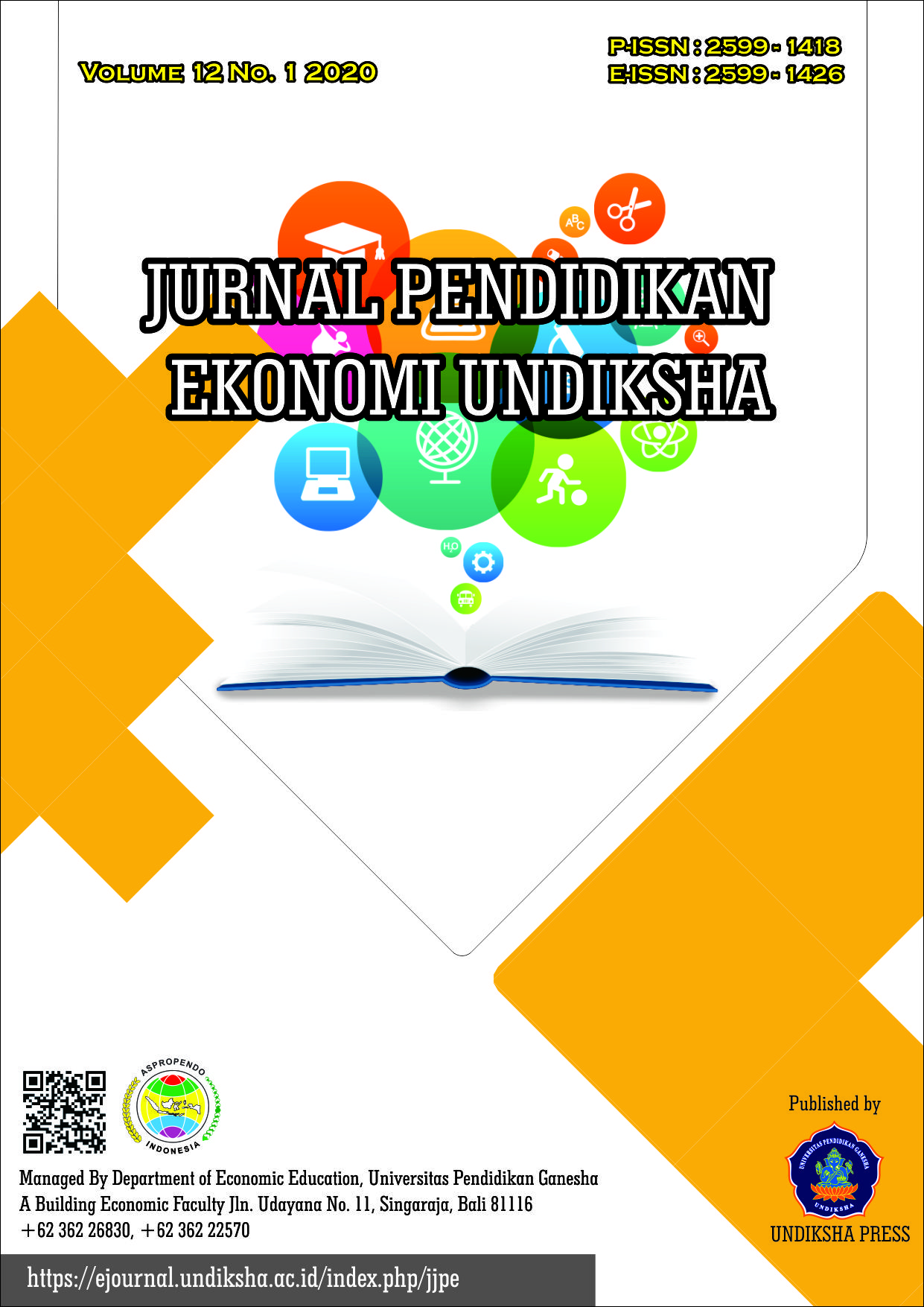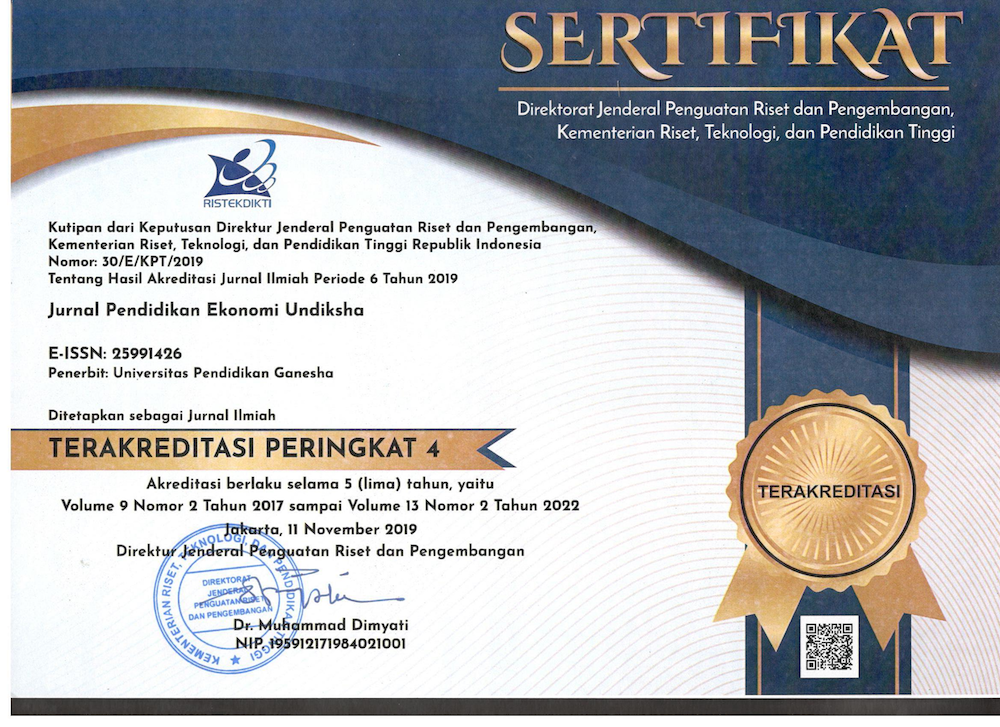Meningkatkan Hasil Belajar Peserta Didik dengan Modul Pembelajaran Berbasis Problem Based Learning (PBL)
DOI:
https://doi.org/10.23887/jjpe.v12i1.25648Keywords:
R&D, Module, Problem based Learning, Learning OutcomesAbstract
The low critical thinking skills of students at SMAN 1 Driyorejo have an impact on the low learning outcomes and the quality of education at the school. To overcome this need a development of teaching materials that require students to think critically and improve learning outcomes. This study was designed to meet the needs of learning media with the aim of describing the module development process according to Thiagarajan, analyzing the feasibility of the modules developed, describing student learning outcomes, and describing differences in student learning outcomes. Research type of research and development are assessed by material experts, linguists, evaluation experts, and graphic experts. Using the 4D model from Thiagarajan. The research procedure includes 3 phases, define, design, and develop. Instruments of product validity were obtained from material experts, linguists, evaluation experts and graphic experts. The results of this study show that the development of PBL-based modules is considered "Decent" based on the average validation of experts, the existence of PBL-based modules can improve student learning outcomes and is strengthened by the difference between learning outcomes of students who use PBL modules with the learning outcomes of students who do not use PBL modules.
References
Abdurrahman, M. (2012). Evaluasi Pembelajaran. Yogyakarta: Multi Presindo.
Astari, F.A. (2018). Efektivitas Penggunaan Model Discovery Learning Dan Model Problem Based Learning Terhadap Hasil Belajar IPA Siswa Kelas 3 SD. Jurnal Basicedu, 2(1).
Khoiriyah, A.J. (2018). Problem Based Learning: Creative Thinking Skills, Problem-Solving Skills, And Learning Outcome Of Seventh Grade Student. Indonesian Journal of Biology Education, 4(2).
Kusumatuti, A.J. (2018). The Implementation of Problem Based Learning (PBL) Based E-Book to Improve The Learning Outcome of Vocational Hight School (VHS) Students. International Journal of Education research Review, 3(2).
Malmia, Wa. (2019). Problem–Based Learning As An Effort To Improve Student Learning Outcomes. International Journal of Scientific & Technology Research, 8 (9).
Novitasari, Regilia. (2015). Efektivitas Model Problem Based Learning Berbantuan Media Audio-Visual Terhadap Motivasi Dan Hasil Belajar Siswa Pada Materi Sistem Ekskresi. Unnes Journal of Biology Education, 4(3).
Permendikbud. Standar Penilaian Pendidikan. , (2016).
Rahman, A. H. B., Wasino, & Martitah. (2018). Development of Social Studies Learning Module Based on Problem Based Learning with Outdoor Study to Improve Learning Outcome of 7th Grade Junior High School Kesatrian 1 Students. Journal of Education Social Studies, 7 (2).
Simamora. (2017). Improving Learning Activity and Students’ Problem Solving Skill Through Problem Based Learning (PBL) in Junior High School. InternationJournal of Sciences: Basic and Applied Research, 33(2).
Servant-Miklos, V. F. C. (2019). Fifty Years on A Retrospective on the World’s First Problem-based Learning Programme at McMaster University Medical School. Health Professions Educations, 5(3).
Sujarweni, W. (2015). SPSS Untuk Penelitian. Yogyakarta: Pustaka Baru Press.
Trianto. (2012). Model Pengembangan Inovatif, Progresif, dan Kontekstual. Jakarta: PrenadaMedia Group.
Ulger, K. (2018). The Effect of Problem-Based Learning on the Creative Thinking and Critical Thinking Disposition of Students in Visual Arts Education. Interdisciplinary Journal of Problem-Based Learning, 12(1).
UNESA. (2000). Pedoman Penulisan Artikel Jurnal, Surabaya: Lembaga Penelitian Universitas Negeri Surabaya.
Wijayanti, Ari. (2016). Efektivitas Model CTL Dan Model PBL Terhadap Hasil Belajar IPS. Jurnal Pendidikan IPS, 3(2).





